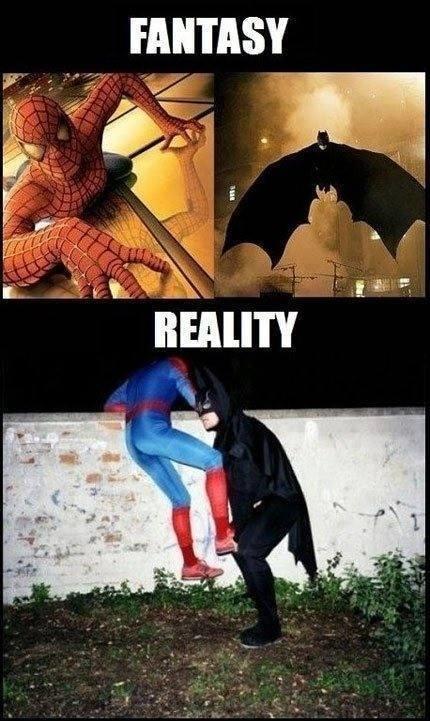As a caveat, I've developed a somewhat confusing habit of trying to challenge existing terminology. I believe language shapes our ideas in profound ways, and one of the ways I want to challenge preconceived notions is to challenge the language itself. Please bear with me.
As a second caveat, this article does not cover the biological basis for love. A lot of the existing thoughts and ideas revolving around love are far more abstract than a chemical reaction which serves as a stimulus for procreation/genetic survival.
Romantic Love, Lust, and Infatuation

These are the terms I want to challenge today. With the way people often throw them about, I want to suggest that the distinction isn't very useful or coming from a very empathetic place. My desire is to make a case that these are largely the same thing.
The contexts in which I criticize these distinctions would be those where terms like "lust" and "infatuation" are distinguished from "romantic love".
You aren't in love. You're just in lust.
How can we determine that the person "in lust" only wants a sexual exchange and dreams and hopes for nothing more?
That isn't love. That's merely infatuation.
I remember the classmates in my high school referring to Romeo from Romeo and Juliet as having simply been "infatuated" with Juliet. That's quite the "infatuation" when he found it preferable to end his life rather than continue to live without her.
I don't find it useful to monopolize what "romantic love" means.
I see guides out there trying to distinguish these terms like saying "love is unconditional", "infatuation is conditional". I must admit that I see it as a bunch of hopelessly romantic hogwash.
For a start, I don't believe in unconditional love, not even for my wife. If she suddenly turned into a psychotic serial killer who kills all my friends and family and everyone else I love and care about, I'm probably not going to love her so much at that point. I'd realize she wasn't who I thought she was and who I thought I fell in love with in the first place.
Love Is a Dream
I want to promote a very simple, all-encompassing definition of "romantic love":
Romantic love is a dream of being together with someone. The dream requires an initial attraction to be built. It's a dream that is built around a particular person and belongs only to that person.
This captures the common denominator of what I had felt at every single stage of my life, from childhood to where I am now, when I thought I "loved" a girl. It captures what Romeo felt when he laid eyes on Juliet. It captures what practically all people I've spoken about who believe they love someone feel.
What I always find in common is that dream of being together.
I also carefully included the prerequisite of an initial attraction (typically sexual in nature), since I have never seen a heterosexual man fall romantically in love with another man, for example. If sexual orientation plays a part in romantic feelings of love, then romance must be rooted, at least initially, in sexuality.

The Dream of My Wife
I love the dream of my wife. I don't love my wife in a practical sense. I cannot list characteristics of her and conclude that these are the reasons I love her. I could fill a book on the subject, re-read the book, and still not find the reasons behind my love.
It doesn't matter how verbose the list becomes. I could describe her physical characteristics, of how she's slim with long limbs and a tiny nose. I could describe her personality characteristics, like how she's sweet and fun-loving and easy-going, social and outgoing, and very educated when it comes to the arts and humanities.
I could even describe her quirks, like how she insists on singing English songs at karaoke even though she's not so good at it and sounds so much better in Japanese. I can go into how she dances in the goofiest way with little footwork and mostly just swinging her upper body. I could go into things that annoy me about her, like how she's uptight about being on time when we go to friends' parties even though it's not a big deal for us to show up a little late (at least not to the point of getting stressed about it).
I could even go into how she took care of me and was so kind and nurturing during times when I was injured. Even those types of things don't capture the love I have for her, since I had ex-girlfriends who did largely the same things and don't love them.
In theory, I could also meet a girl who possesses predominantly the same characteristics my wife has, and yet my love would not transfer to her. My love would still belong uniquely to my wife.
The reason I love my wife is for the simple reason that I built my dream of being together with a mate strictly around her. The dream belongs exclusively to her and no one else, not even people like her. I built a symbolic image in my mind of who and what she represents to me and fell in love with that image. My dreams, hopes, and fantasies are the sole reason I love my wife.

Fantasy vs. Reality
What distinguishes the love I have for my wife from say, someone who is crushing?
I remember being an awkward teenager struggling with American English and mannerisms in high school. A lot of people teased me for it but there was this one girl who was so sweet and kind and patient with me when it came to how I communicated. I developed a massive crush on her in spite of not knowing her very well (she was friendly but not a close friend).
What was the difference in feelings between my teenage self, crushing on this girl, and my older self now? We both developed a strong attachment to a girl. We both had a dream of being together with this girl forever. We both missed her terribly in her absence. We both wanted much more than sex from the girl. Both of us would want to take care of the girl if she was sick.
The only difference I can conclude is that my love for my wife was a dream born out of a great deal of experience and mutual participation on her part. My dreams and hopes and expectations have also evolved over the years of getting to know my wife better.
My teenage self, in contrast, built those dreams largely oblivious to who this girl really was beyond the fact that she seemed kinder and more patient than most people I was around. He built those dreams largely in his imagination based on assumptions of who she was and expectations which may not have been the slightest bit realistic.

Accuracy and Realistic Expectations
Both myself and my teenage self still don't understand the girl we think we love with pinpoint accuracy. Both of us are still living, to some degree, in fantasy land.
Even though I can often predict what my wife will do or say to the point of completing her sentences for her, I have to admit that I don't understand her inside-out. I can't read her mind.
There are still times when my wife surprises me with how she reacts to a particular situation. There are still times when she behaves in a way that don't perfectly align with my expectations. The only difference is that my dreams and expectations of my wife are considerably more accurate and more complete than my teenage self towards his crush.
If accuracy and realistic expectations were a prerequisite for "love", I would challenge the notion that anyone ever truly falls in love. Given such a tight definition, we would be able to dismiss almost any couple who has broken up as having never truly loved each other in the first place, since the primary reason couples break up is because one or both partners failed to live up to the other's expectations. Such a suggestion that they never loved each other would be absurd.
It is not a useful distinction to suggest that realistic expectations and an accurate preconception of who we love is a prerequisite for love. With such a strict definition, I can't even confidently say that I love my wife.
Again, I find myself coming back to my personal definition:
Romantic love is a dream of being together with someone [...]
Both my teenage self and I were "in love" according to that definition. The only difference is the level of accuracy, experience, and how realistic our dreams, hopes, and expectations were.

Empathy
Empathy is the ultimate reason I wrote this article. If we took my awkward teenage self and merely told him, "What you're feeling isn't love," he would not understand. He would be confused and think we're the ones who don't understand.
It would be like telling a suicidal person, "You're being a coward." That's a dismissive stance, devoid of empathy, that doesn't really acknowledge the other person's feelings. Whether or not it's true doesn't matter. Saying such a thing would only isolate and confuse the person further.
Instead I'd want to tell my teenage self something along the lines of this:
I remember loving a girl the way you did. It's not so different from the feelings I have now for my wife.
Nevertheless, you must realize that you built these dreams of being together largely divorced from practical experience or mutual participation on her part. You're in love almost entirely with your imagination of who she is.
In such cases you have to be careful. She might not even like you back the way you hope she does or turn out to be anything like the person you imagine she is.
To fall for a girl so quickly can be a path towards grief and the most unpleasant surprises. You could also scare her away having developed such a strong attachment while she feels that such an attachment is unjustified.
And if things don't work out, remember that you'll only be disappointed because she turned out to be someone other than who you imagined her to be. Since you fell for her so quickly, I can practically guarantee that you will feel this way again for someone else.
I'm almost certain this will work much better than simply telling him, "What you're feeling isn't love." I believe this will help him realize that we are relating to him on some level, that we have been there and done that. Most importantly, I think he'll then heed our warnings and act in a wiser way.

Conclusion
I hope I've made some case for why it's not necessarily very insightful, or at the very least not very empathetic, to try to monopolize what love means. From my standpoint, anyone who has a dream of being together with someone else is feeling some form of "romantic love".
The difference, as I see it, is how practical their expectations are: how grounded their hopes and dreams and expectations are in reality and mutual experience.
At the same time, I want to discourage the most foolhardy forms of "love". Nevertheless, even to effectively discourage it, we must first relate to it and not merely dismiss it if we're going to relate to young people.

 Holidays
Holidays  Girl's Behavior
Girl's Behavior  Guy's Behavior
Guy's Behavior  Flirting
Flirting  Dating
Dating  Relationships
Relationships  Fashion & Beauty
Fashion & Beauty  Health & Fitness
Health & Fitness  Marriage & Weddings
Marriage & Weddings  Shopping & Gifts
Shopping & Gifts  Technology & Internet
Technology & Internet  Break Up & Divorce
Break Up & Divorce  Education & Career
Education & Career  Entertainment & Arts
Entertainment & Arts  Family & Friends
Family & Friends  Food & Beverage
Food & Beverage  Hobbies & Leisure
Hobbies & Leisure  Other
Other  Religion & Spirituality
Religion & Spirituality  Society & Politics
Society & Politics  Sports
Sports  Travel
Travel  Trending & News
Trending & News
What Girls & Guys Said
Opinion
2Opinion
I did discover that I have a lot of unrealistic expectations about love a few days ago :D is more like dreaming something that exists only in my dreams
Ah, I loved this Take!
Very good Take. Well done. 👍